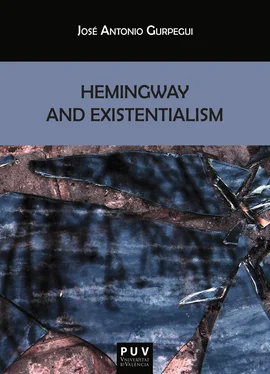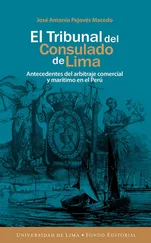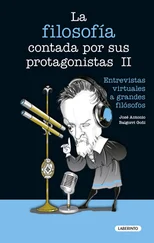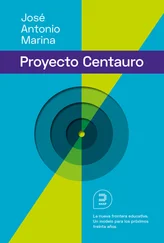The absence of the universal truth and values was also developed by Karl Jaspers. Man, as Jaspers understands, is continuously exposed to difficult situations and is oriented towards transcendence. A yearning for transcendence, its “search” ( Suche ), is something inherent to existence itself. Therefore, we are only interested in our own existence, and in values and existentialist truths (not universal) through which we guide our lives towards transcendence. Paradox, as in Kierkegaard, also makes up the nucleus of Jaspers’ thought. Jaspers understands that our existence is a continuous search for transcendence, but it becomes an impossible goal since any event or discovery would stop being considered transcendent in the exact moment in which it happens or is reached; in other words, man finds the yearning for transcendence in the process of the “search” inherent to existence. For him, knowledge is simply a subjective point of view of the human being in the world, but it becomes limited, never universal, because there are as many subjective points of view as individuals. Thought, which he identifies with “reason,” would be a way of illuminating existence. In fact, always according to Jaspers, through “reason” man gets to know the limitations of his own existence. Moreover, through “reason” we have knowledge of other means of existence, especially the transcendent, towards which we should guide or relate our own existence. Although Jaspers explicitly rejects any type of religious doctrine, his interest and worry for the transcendence and limits of the human experience strongly influenced “religious” existentialist philosophers like those already mentioned.
Jean Paul Sartre provided the last component. He took these theories to their extreme and advocated a radical nihilism which he denominated “humanism,” a theory which he developed in Existencialisme est un humanisme (1948). The concept of nihilism, closely related to Sartre, currently has an undeniable pejorative meaning since it is directly related to pessimism and to the desperation that facing nothingness brings, especially from Catholic postulates. Nevertheless, the existentialist does not see nihilism as something negative but as Prini explains, quite the contrary,
De esta clarificación depende la cuestión más importante de nuestro tiempo; si el nihilismo es una conclusión o más bien un método amargamente lúcido de hallar de nuevo un sentido auténtico del ser. En esta segunda alternativa, emergen de la radicalidad de sus negaciones los equívocos que nacen de no reconocer el enigma de la ambigüedad del ser como necesidad, finalidad, o libertad. (18) 20
The alteration of the concepts and their assessment seems radical: nihilism does not represent anguish and desperation but becomes the path to “find a new meaning of the real being.” From a popular point of view, it does not seem “optimistic” to describe someone as “existentialist.” However, solely from a philosophical perspective of existentialism, he questions the vision of mankind as an “unindividualized” and “impersonalized” being, as Hans Pfeil affirms,
el existencialismo nació de una apasionada protesta contra la ruina del hombre, contra su desindividualización y despersonalización, contra el necio desconocimiento de su peculiaridad individual, de su libertad y responsabilidad personal, y contra el menosprecio—más necio todavía—de la perplejidad y caducidad, de la fragilidad y finitud del hombre. (66) 21
Summarizing what has been stated, for the existentialists (specifically referring to Kierkegaard, Heidegger, Jaspers and Sartre), the human being is an individual and not an idea, someone who must live his own life without being part of the universal. They are interested in the salvation of the individual man, outside of the fallacy and vulgarity that means being part of the mass, of the group. The problem with mankind would be how to exist ( Dasein ) so that his personal existence materializes ( Existenz ). Two characteristic features of existentialism will be those relative to the “futility of existence” and the “unsubstantiality of existence.”
According to the “futility of existence,” birth does not presuppose a transcendental event—from the spiritual point of view—in our lives, since we have been placed in a chaotic and contradictory world without our consent; for this reason, mankind must create its own space of understanding and sense. Existence itself implies progression, future, with death being the only certainty of the future, which can be looked upon as a sense of anguish when facing this inevitable end. In other words, existence is finite, as finite as our own life. For the existentialist philosophy mankind is immersed in a hostile world, or in the best scenario, in an indifferent world.
As for the “unsubstantiality of existence,” they understand that existence does not have a universal essence but that it is personal and individual. Each individual is radically different from one another and the social system does not resolve their problems. Society is absurd, as is everything outside of mankind, and this drives man towards decadence. Any external universal thought or value is only a deceit for there are no values or rules that show a path to follow or a goal to reach. Although it seems eternal, it is only temporary; if it seems objective it is subjective. Therefore, existence is something isolated and confined to itself and in itself without any type of possible transcendence or projection. This leads them to think that existence is an experience of complete freedom and disengagement, of “causa sui.” They conclude that it is precisely at the time of complete consciousness of freedom and disengagement that man reaches personal existence ( Existenz ) in such a way that he can act and find self-fulfillment. As Kierkegaard had stated, mankind “is constantly in the process of becoming” (In Killinger, 25. Citing Kierkegaard in Concluding Unscientific Postscript , 79). It is a premise radically opposed to deterministic pessimism; thus, it cannot be considered from the optimism of the Enlightenment itself, since existentialism demands an incessant search but it denies the security of finding something. In a certain way, we are dealing with a race towards emptiness, towards nothing. This second certainty also generates anguish, like the certainty of death does, since mankind is aware of the impossibility of reaching objectives and valid universal truths. In either case, it is not about the theological anguish coming from the fear of God and eternal condemnation, but about the anguish when facing nothing.
The existentialist principles of interest to understand Hemingway’s existentialism are referred to different authors: from Kierkegaard, the denial of universal values benefitting an individual and singular philosophy of the individual; from Heidegger, the conception of mankind as a “being for death” (Sein-zum-Tode), deriving from the identification of “being” with “existing”; from Jaspers, the study of “limit situations” and his transcendent worries; from Sartre, his nihilistic vision—not necessarily negative, as it has already been mentioned—of the human being.
1 Anyway, it could be suspected that these attacks were more focused on the man than on his work, for Hemingway had never had enough time to be involved in the literary environment, and never doubted to express it in a clear and aggressive language (my translation).
2 The list would continue with Archibald MacLeish, William Bird, Donald Orden Stewart, Dorothy Parker, etc.
3 We also find this type of revenge among the Russian writers. The best known is that of Dostoievski with Turgenieff—personalized in Karmazinov—in The Devils (1871).
Читать дальше












